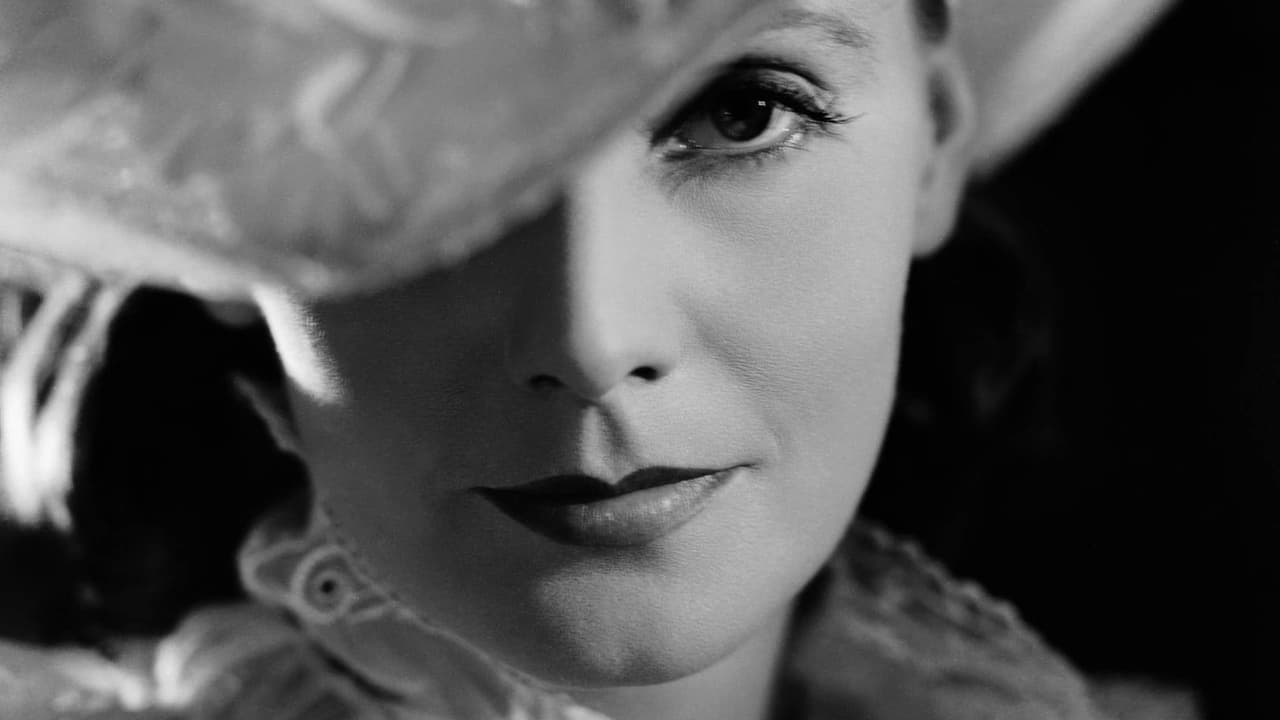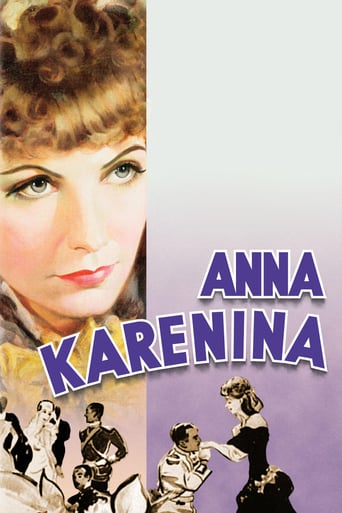

This movie is the proof that the world is becoming a sick and dumb place
... View MoreSimple and well acted, it has tension enough to knot the stomach.
... View MoreI enjoyed watching this film and would recommend other to give it a try , (as I am) but this movie, although enjoyable to watch due to the better than average acting fails to add anything new to its storyline that is all too familiar to these types of movies.
... View MoreStory: It's very simple but honestly that is fine.
... View MoreHow many times have they made a movie out of Anna Karenina? Too many to count, but if you have seen a version, it's probably starred either Vivien Leigh, Helen McCrory, Sophie Marceau, Greta Garbo, or Keira Knightley, since those are the most famous adaptations. The 1935 version isn't the first Hollywood made, but you might want to check it out if you're interested in an early film that's a talkie. Greta Garbo completely lives up to her reputation of "The Face" in this lush romance; in my opinion, she's never looked prettier than she did in Anna Karenina. This version is a really great one to start with if you've never seen or read the story before, since everyone in the film is perfectly cast to how their characters are supposed to look. In the story, Anna is supposed to be breathtakingly beautiful, and she falls in love with a young, handsome Count while married to a strict, not particularly gorgeous man. Basil Rathbone plays Greta's husband, and if you've ever seen him in a movie, you know it's no stretch for him to play a convincing, and classy, villain. Fredric March is the passionate lover, and in his younger days, he could clean up very well. The incredibly adorable Freddie Bartholomew plays Greta's son, so it absolutely makes sense that he's the light of her life. Other versions don't cast endearing children or handsome lovers; this one really communicates the essence of the story.
... View MoreThis 1935 version of Leo Tolstoy's famous novel did pretty much what I was expecting it to -- strip the novel down to a standard, melodramatic love story.Anna's affair with Vronsky and feud with her husband isn't the most interesting thing about Tolstoy's novel. It's how this love triangle is used to highlight aspects of Russian culture at the time, including attitudes about class, gender roles, sex, you name it. Anna isn't even the most interesting character, and though the book is named for her, she disappears for long stretches of time. The film's primary reason for existence is to showcase Greta Garbo in the title role, and she suffers as nobly as she always did, but what a dull affair the movie makes of that suffering. In the very first scene, Clarence Brown suggests that he might direct the film with something other than studio assembly line efficiency. A reverse tracking shot down the length of an opulently decked out dinner table calls attention to itself, and part of me wants to believe that this shot, visually mimicking the movement of a train between parallel tracks, was purposely used by Brown to foreshadow Anna's eventual tragedy. But this first shot is the last time Brown displays any amount of stylistic creativity, and it ends up sticking out like a sore thumb in a movie that's otherwise directed with pedestrian anonymity.Grade: C
... View MoreThis is definitely worth seeing, but I prefer "Queen Christina" and "Ninotchka." I've seen many other versions of "Anna Karenina," and this, like the others, was rich with atmosphere, and in that regard this version surpasses them, but I'm not a big fan of Frederick March, who overacts. Garbo was splendid, as usual, but miscasting the lead actor opposite her is a problem that crops up in many of her films. Garbo's style was so romantically intense that few male stars of the time could work a scene with her believably. Her remarkable intensity tended to bring out over acting in her partners, who attempted to match her approach. But Garbo knew just when to turn it on and off, and how to twist a phrase at the end so the moment didn't become maudlin or corny. Her male co-stars just stumbled over themselves trying to reach her emotional peaks. Robert Taylor had that problem in "Camille," as did Ramon Novarro in "Mata Hari" to name two. John Gilbert, her co-star from many silent films, understood how she worked, and Melvyn Douglas, who took her on in "Ninotchka" managed to maintain his own low key acting style which was nicely offset against her specific qualities. Unfortunately, in "Anna" March is stiff and obvious, possessing none of the subtlety that Garbo managed to create in scene after scene, movie after movie. To condense this massive story down to an hour and a half is a crime. The Vivian Leigh version also cut many of Tolstoy's side plots and entire characters, but somehow it seemed less rushed. A much longer mini series has a weak Anna, but does have the entire story and all the characters. It's a massive book with many characters and to do it proper justice, a mini-series or long epic film is really necessary. Yet Garbo is always worth watching, even if the scenes she has with March don't have the power they should. The ending train scene is effective, and though it's been done better in other versions, none of the other versions have those expressive Garbo eyes that reach to the extreme depths of her soul. What a face! As one of MGM's glossy period dramas, the magnificent sets and costumes, cinematography and art direction all contribute to a splendid recreation of an era, but like most MGM dramas based on the classics, it's very Americanized. And with the Hayes Code in place by 1935, the sheer abandon of the actual love story between Anna and Vronsky had to be toned down considerably. This may have contributed to March's over-zealous acting style, attempting to make up for what they couldn't show on screen - but on the other hand, knowing March's acting style from many other films, I doubt it. Years ago I saw "Love," the silent version of "Anna Karenina" with John Gilbert and Garbo, which was my first experience of that story on film. Though the ending was shamefully changed from the book, I remember being impressed with how believably passionate Garbo was, and how much emotion powered her love scenes with John Gilbert. I'd like to see it again, but I've read that the TMC version Warners is selling has a horrible music track, recorded live with an audience laughing at inappropriate places. MGM's version of "Anna Karenina" is from Greta Garbo's prime, and for that it is well worth seeing. She's beautiful and says more with a single glance than most novelists achieve with ten chapters.
... View MoreGarbo is great, March awful, but O'Sullivan is best, and s/h reversed roles with Garbo... Pity how such mismatches occur. I think Garbo is truly great. Just not sufficiently great to carry over the charm of O'Sullivan. I'd welcome any ideas how to fix this. Also, why not just get the casting right, then they don't have to remake every ten years. Similar occurs is all the other remakes. Perhaps best is the Russian production. Why does this system compress my simple comments to so few lines. It is important for Anna to maintain force, but with a weakling like this Vronsky, maybe O'Sullivan may actually have been too much. But that does not reduce my comment that O'Sullivan is the best actor in this whole movie, which i feel i wasted so much time and effort watching, studying and reviewing...
... View More